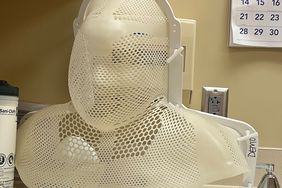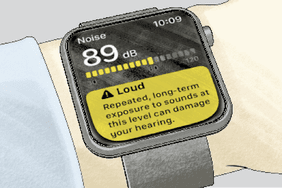:max_bytes(150000):strip_icc()/PAR0919_EOILS_19_04_17_Parents_224-2-2000-7a343e6f4f3d45159f35a2fc1fc40119.jpg)
There has been a lot of talk among farmers about growing hemp as a crop, but what about actually using a by-product to help manage health issues?
Cannabidiol (CBD) has been all over the news and social media. People are using it for everything from pain management to anxiety relief to a sleep aid. It comes in a variety of forms, including capsules, oil, infused honey, topical ointments, and edibles like gummies. Different products can be rubbed on sore knees, placed under the tongue with a medicine dropper, or added to smoothies or other foods.
Researching CBD brings up question after question, and since the products available on the market are relatively new and aren't tested and approved by the Food and Drug Administration (FDA), there aren't a lot of definitive answers.
What Exactly Is CBD?
Michael Bowman, founding chair of the National Hemp Association, explains that CBD is an extract from the female hemp plant. "You grow those female plants much like you would a marijuana plant, with the difference being the amount of THC (tetrahydrocannabinol, the active ingredient of cannabis)," he says. "It's like O'Doul's and Guinness. The CBD plant is nearly void in THC." In other words, it won't get users high.
In the 1990s, scientists discovered that all vertebrates naturally produce cannabis-like molecules called endocannabinoids. The body's endocannabinoid system (ECS) is complicated and there's still much to learn about it, but as the UCLA School of Medicine explains, "It appears the main function is to maintain bodily homeostasis – biological harmony in response to changes in the environment." In layman's terms, it keeps the body from going haywire when an injury or infection occurs.
Endocannabinoid receptors are found throughout the body, and the system plays a role in processes such as pain, memory, mood, appetite, sleep, stress, metabolism, the immune system, and reproductive functions. Using CBD may help the body use its own natural endocannabinoids more effectively.
Is it Legal?
The legality of CBD is complicated. In 2018, the U.S. Food and Drug Administration approved CBD oral solution Epidiolex for treating seizures in children diagnosed with two rare but severe types of epilepsy. This is the only FDA-approved and regulated drug containing CBD.
The 2018 Farm Bill legalized the production and sale of hemp and its extracts, as long as it doesn't contain more than 0.3% THC. If it has more than that, it's considered marijuana and is illegal on the federal level.
As long as the product comes from a hemp plant with less than 0.3% THC, it's legal to buy under federal law. However, in order for anything to be completely legal, it must be legal on both the state and federal levels.
Idaho, Nebraska, and South Dakota do not allow cannabis products in any form to be purchased or consumed. In 14 states including Indiana, Iowa, Kansas, Wisconsin, and Wyoming, it is allowed under specific circumstances. In 22 states including Illinois, Minnesota, Missouri, Montana, North Dakota, Ohio, and Oklahoma, a medicinal marijuana card must be obtained and a prescription is required. In 11 states including Colorado and Michigan, both medicinal and recreational use of marijuana is legal for adults, so CBD isn't restricted either.
However, with the lone exception of Epidiolex, the FDA considers CBD a supplement and prohibits its sale in unapproved health products, dietary supplements, or food. Despite the restriction on selling these products, purchasing or possessing them isn't necessarily illegal.
See? It's complicated. Regardless of the legality, the fact is over-the-counter CBD products are readily available most places and can be easily purchased online.
Is it Regulated?
In some states, CBD products must include labels that state the amount of CBD they contain, but there is no regulation for these products. That means it's difficult to know exactly what is in them and how much (if any) CBD or THC is present.
Specific doses for different medical conditions may be recommended on the supplement labels, but, again, they haven't been approved by the FDA.
The FDA has issued written warnings to several CBD product manufacturers for making unsubstantiated medical claims, including the treatment of ADHD, anxiety, depression, post-traumatic stress disorder, schizophrenia, fibromyalgia, chronic pain from arthritis and slipped disks, eating disorders, Parkinson's disease, Alzheimer's disease, breast cancer, heart disease, and opioid withdrawal.
Other warnings were issued to companies claiming their CBD products could treat maladies in dogs, cats, and other animals, including separation anxiety, seizures, neurological problems, diabetes, cancer, and arthritis.
The FDA states, "It is important to note that these products are not approved by FDA for the diagnosis, cure, mitigation, treatment, or prevention of any disease. Consumers should beware purchasing and using any such products."
Is it Safe?
A report from Harvard Medical School cites nausea, fatigue, and irritability as possible CBD side effects.
It can also affect other medications such as the blood thinner Coumadin (Warfarin) in much the same way as grapefruit juice does. So, if you take a medication that comes with a warning against consuming grapefruit juice, CBD should not be used either.
According to a report from the World Health Organization, "In humans, CBD exhibits no effects indicative of any abuse or dependence potential. To date, there is no evidence of public health-related problems associated with the use of pure CBD."
Does it Work?
Proponents point out that just because the FDA isn't regulating CBD or allowing companies to make claims about specific benefits, that doesn't mean it doesn't work. It just means other potential uses of CBD haven't made it through the research phase yet.
The National Institutes of Health has more than doubled funding for CBD research in the past five years, from $9 million in 2015 to $20 million in 2019. Current research ranges from a Johns Hopkins University study on whether oral CBD can help with stopping smoking to a Stanford University study on using CBD to control epilepsy.
The Harvard Medical School report states, "Some CBD manufacturers have come under government scrutiny for wild, indefensible claims, such as that CBD is a cure-all for cancer, which it is not. We need more research, but CBD may prove to be an option for managing anxiety, insomnia, and chronic pain."
The National Center for Biotechnology Information, part of the National Institutes of Health, published a report entitled, "The Health Effects of Cannabis and Cannabinoids." The report states that, in adults with nausea and vomiting caused by chemotherapy, oral CBD effectively controls those symptoms. It also says chronic pain patients treated with cannabis or CBD are, "more likely to experience a clinically significant reduction in pain symptoms."
The Arthritis Foundation also references preliminary research that suggests CBD may help with arthritis pain.
Another potential benefit cited in the report is for multiple sclerosis patients. It says short-term use of oral CBD can improve spasticity, or the involuntary contraction of muscles, which interferes with normal movement, walking, and speech. Sativex, a drug containing CBD and THC, has been approved in 25 countries outside the U.S. for treating spasticity in MS patients.
Regardless of which side of the CBD argument different experts find themselves, the one thing everyone agrees on is that people considering adding a medicine or supplement to their health routine should consult their doctor first.
:max_bytes(150000):strip_icc()/LisaFoustPrater-5d5284849acc417c8678324f9c660161.jpg)









